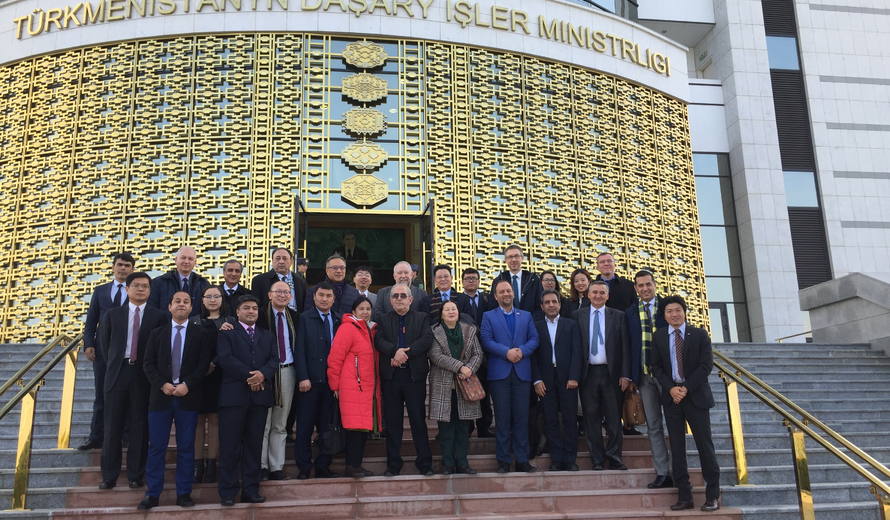Silkroads News
Decisions adopted by Ashgabat Silk Roads Coordinating Committee
Summary: ©UNESCO Ministry of Foreign Affairs, TurkmenistanFollowing the Fifth Meeting of the Coordinating Committee on Serial Transnational World Heritage Nomination of the Silk Roads, 4–5 December 2018, Ashgabat, Turkmenistan, the participants including nat
© UNESCO & Ministry of Foreign Affairs, Turkmenistan
Following the Fifth Meeting of the Coordinating Committee on Serial Transnational World Heritage Nomination of the Silk Roads, 4–5 December 2018, Ashgabat, Turkmenistan, the participants including national focal points and experts from thirteen countries, adopted a list of decisions for further activities to preserve and manage the Cultural Heritage sites along the Silk Roads.
The 5th Coordinating Committee Meeting brought together about 40 national focal points and experts from thirteen countries, which included eleven members of the Silk Roads Coordination Committee - Afghanistan, China, Iran, Japan, Kazakhstan, Kyrgyzstan, Nepal, Pakistan, Turkey, Turkmenistan, and Uzbekistan - and two partner countries - Azerbaijan and the Russian Federation who joined the meeting for the first time. The meeting also invited representatives from ICOMOS International Conservation Center-Xi’an, the Secretariat of Silk Roads Coordination Committee, as well as UNESCO representatives and international resource persons, including the International Institute for Central Asian Studies (IICAS) and University College of London (UCL) to support the discussions on technical assistance and cooperation. The meeting, as a special event during the 2018 year of ‘Turkmenistan is the Heart of the Great Silk Road’, was partially financed by the UNESCO/Japanese Funds-in-Trust, via the project “Support for the Silk Roads World Heritage Sites in Central Asia (Phase II)”, and the voluntary contributions to the World Heritage Fund by the Governments of China and Kazakhstan. The meeting resulted in the Ashgabat Decision.
The Ashgabat Decision calls to refocus the efforts of the Inter-governmental Coordinating Committee (ICC) from listing to conservation, with an emphasis on enhancing coordination for the protection and management of Silk Roads cultural heritage properties, especially in view of recent critical state of conservation issues in Central Asia. Furthermore the Coordinating Committee members consider that the Maritime Silk Routes do not fall within the mandate of the present Coordinating Committee, and that it is therefore more appropriate to look at the Maritime Silk Routes using a different nomination approach; and to encourage interested States Parties to establish a coordination mechanism similar to that of the land routes, if necessary.
The Ashgabat Decision calls to refocus the efforts of the Inter-governmental Coordinating Committee (ICC) from listing to conservation, with an emphasis on enhancing coordination for the protection and management of Silk Roads cultural heritage properties, especially in view of recent critical state of conservation issues in Central Asia. Furthermore the Coordinating Committee members consider that the Maritime Silk Routes do not fall within the mandate of the present Coordinating Committee, and that it is therefore more appropriate to look at the Maritime Silk Routes using a different nomination approach; and to encourage interested States Parties to establish a coordination mechanism similar to that of the land routes, if necessary.
Category: English
News
Silkroads News
Key words:

